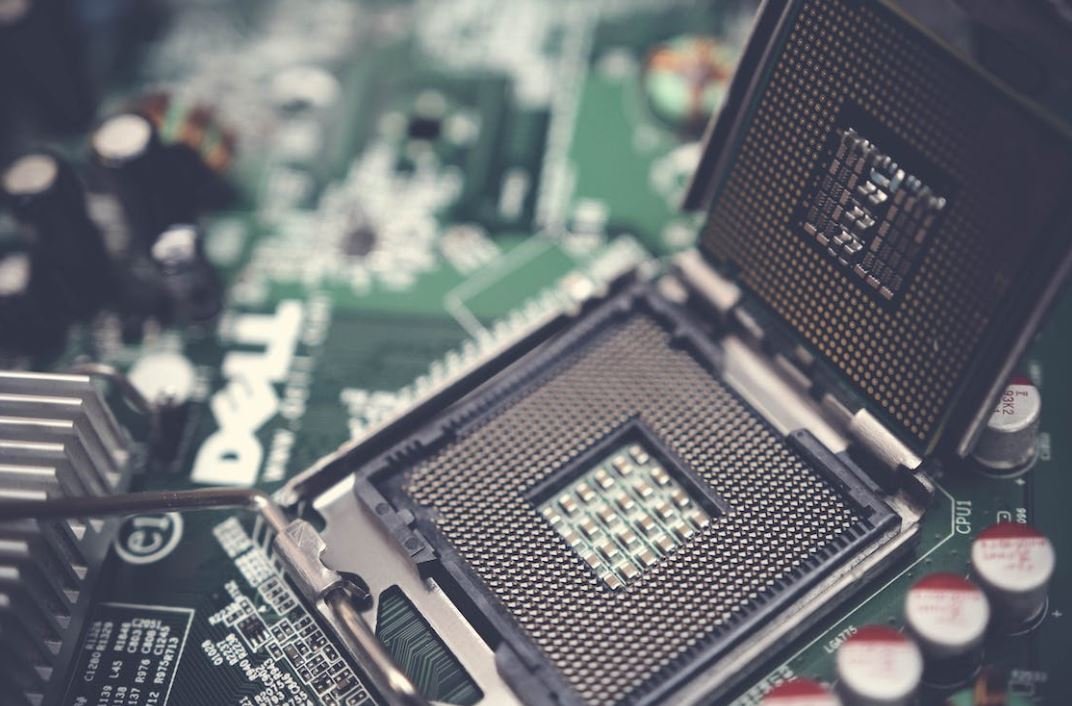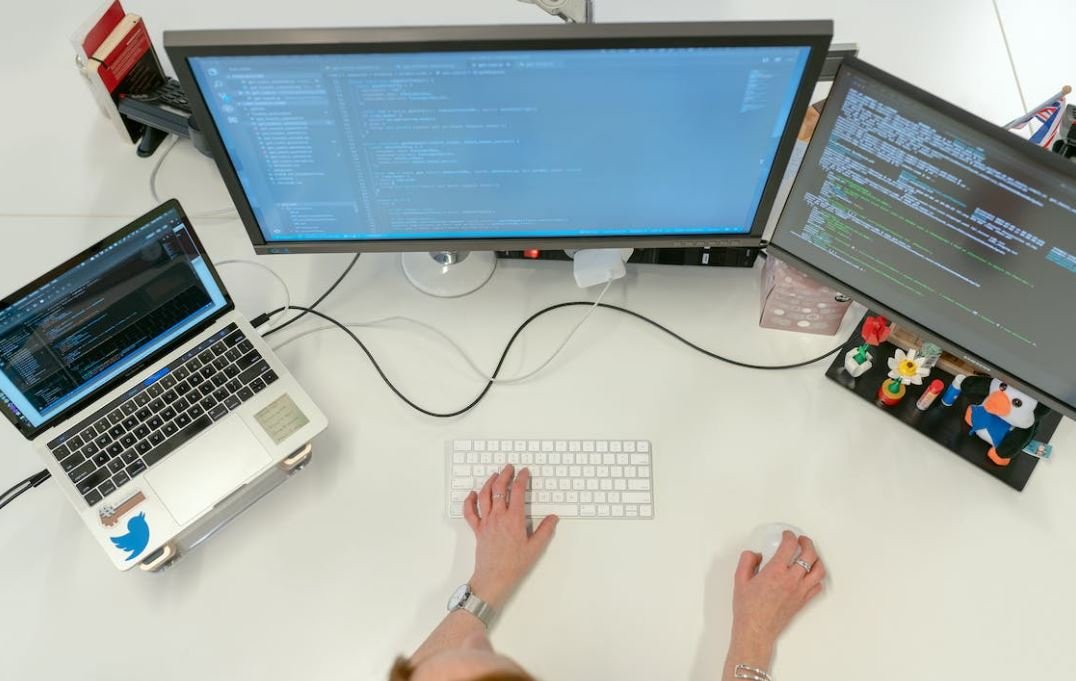Why Does Artificial Intelligence Matter?
Artificial Intelligence (AI) is no longer just a concept from science fiction movies – it is becoming an integral part of our everyday lives. From voice assistants like Siri and Alexa to self-driving cars and personalized recommendations on streaming platforms, AI is transforming various industries and enhancing efficiency. So, why does artificial intelligence matter? Let’s explore the key reasons.
Key Takeaways:
- Artificial Intelligence (AI) is increasingly prevalent in our daily lives.
- AI improves efficiency and accuracy in various industries.
- AI has the potential to revolutionize healthcare, transportation, and more.
- AI can significantly impact the job market, requiring new skills and roles.
- Ethical considerations and precautions are necessary for responsible AI development and deployment.
Enhancing Efficiency and Accuracy
One of the main reasons AI matters is its ability to enhance efficiency and accuracy in various tasks. **AI-powered algorithms can process large volumes of data quickly, identifying patterns and making predictions**. This enables businesses and organizations to streamline processes, make informed decisions, and optimize their operations. For example, AI can automate repetitive tasks, improving productivity and freeing up human workers to focus on more complex and creative work.
Additionally, **AI can analyze data with a level of precision and speed that surpasses human capabilities**. In fields such as finance and healthcare, AI algorithms can flag anomalies or patterns that humans may miss, leading to more accurate fraud detection or early disease diagnosis. By leveraging AI, businesses and industries can achieve higher levels of accuracy and efficiency in their operations.
The Potential for Revolution
Artificial Intelligence has the potential to revolutionize various industries, including healthcare, transportation, and finance. In healthcare, **AI can aid in diagnosing diseases, developing personalized treatment plans, and improving patient outcomes**. AI algorithms can analyze medical records, genetic data, and clinical research to assist doctors in making more accurate diagnoses and predicting patient responses to specific treatments.
Transportation is another area where AI can have a significant impact. **Self-driving cars powered by AI algorithms have the potential to make roads safer by reducing human error**. These vehicles can analyze real-time data, anticipate road conditions, and make split-second decisions to improve driving safety and efficiency. Furthermore, AI can optimize traffic management systems to reduce congestion and improve transportation infrastructure.
The Changing Job Market
As AI continues to advance, it will reshape the job market. While some repetitive and low-skill jobs may be replaced by automation, **AI will also create new roles and demand for individuals with expertise in AI-related fields, such as machine learning and data analysis**. Organizations will need professionals who can develop and maintain AI systems, ensuring their proper functioning and ethical use.
Furthermore, **AI can augment human capabilities, enabling workers to be more productive and focus on tasks that require critical thinking and creativity**. Rather than replacing humans, AI can be seen as a tool that complements and empowers human workers, leading to new opportunities and improved job satisfaction.
Ethical Considerations and Precautions
While the potential of AI is immense, it also raises ethical considerations and the need for precautions. **AI systems are only as good as the data they are trained on**, and biased or incomplete data can lead to biased or inaccurate results. It is crucial to ensure diversity and fairness in both the training data and the development of AI algorithms to avoid reinforcing existing biases or creating discriminatory outcomes.
Moreover, as AI becomes more autonomous, there is a need for **establishing ethical guidelines and regulations to govern its development and use**. Transparency, accountability, and privacy protection are essential to ensure responsible AI deployment. Striking the right balance between innovation and responsible AI practices is crucial for a sustainable and equitable future.
Tables:
| Industry | AI Application |
|---|---|
| Healthcare | Medical diagnosis, personalized treatment plans. |
| Transportation | Self-driving cars, traffic optimization. |
| Finance | Fraud detection, risk assessment. |
| Pros | Cons |
|---|---|
| Increased efficiency | Job displacement |
| Improved accuracy | Potential biases |
| New job opportunities | Ethical concerns |
| AI Development Phases | Key Characteristics |
|---|---|
| Weak AI | Specialized, narrow applications. |
| Strong AI | General intelligence, human-like capabilities. |
| Superintelligent AI | Far surpasses human intelligence, potential future development. |
Artificial Intelligence is transforming industries, enhancing efficiency, and revolutionizing how we live and work. Its impact on the job market, along with ethical considerations, underline the need for responsible AI development and deployment. As AI continues to advance, it is important for individuals, organizations, and policymakers to navigate this transformative technology effectively to ensure a better future for all.

Common Misconceptions
Misconception 1: Artificial intelligence is just a sci-fi concept
One of the common misconceptions about artificial intelligence is that it remains a fanciful idea seen in science fiction movies and books. However, AI is not just a figment of imagination; it is already revolutionizing various aspects of our lives.
- AI technologies are being used for voice assistants like Siri and Alexa.
- AI is being applied in healthcare for early detection of diseases.
- AI is improving cybersecurity measures to protect digital systems.
Misconception 2: Artificial intelligence will take over all jobs
Another misconception is the belief that AI will completely replace human jobs, leading to massive unemployment. While AI has the potential to automate certain tasks, it also presents new job opportunities and can enhance human capabilities in many fields.
- AI can augment human capabilities and assist in decision-making processes.
- AI can create new job roles that require interaction with AI systems.
- AI can lead to the development of new industries and sectors.
Misconception 3: Artificial intelligence is infallible
Some people have the misconception that AI is flawless and always makes the right decisions and predictions. However, AI systems are not immune to errors and biases, as they have limitations and rely on algorithms created by humans.
- AI systems can be biased due to the data they are trained on.
- AI systems can make mistakes if the input data is incomplete or inaccurate.
- AI systems can lack common sense and interpret situations incorrectly.
Misconception 4: Artificial intelligence is unethical
There is a misconception that AI is inherently unethical and can lead to negative consequences for humanity. While it is true that AI raises important ethical considerations, it is important to recognize that AI’s impact depends on how it is developed, regulated, and used.
- AI can improve efficiency, accuracy, and accessibility in various sectors.
- Ethical guidelines and regulations can be implemented to ensure responsible AI usage.
- AI can contribute to solving critical global challenges, such as climate change.
Misconception 5: Artificial intelligence will replace human intelligence
Sometimes people assume that AI aims to replicate human intelligence and ultimately replace human beings. However, the goal of AI is to complement human intelligence and provide valuable tools to assist and empower individuals, rather than rendering them obsolete.
- AI can automate repetitive tasks, allowing humans to focus on more creative and complex endeavors.
- AI can assist in decision-making processes and provide valuable insights.
- AI can be seen as a tool that extends human capabilities and enhances productivity.

The Rise of Artificial Intelligence
Artificial Intelligence (AI) has become a transformative force across various industries, impacting everything from healthcare to finance. This article uncovers 10 intriguing aspects that highlight the relevance and significance of AI in our modern world.
Enhancing Healthcare
AI applications are revolutionizing healthcare by improving diagnostics, predicting diseases, and assisting in surgeries. The table below showcases some of the impressive achievements made by AI technology in the medical field.
| AI in Healthcare |
|—————–|
| AI diagnoses skin cancer with higher accuracy than dermatologists. |
| Machine learning algorithms can predict the likelihood of heart attacks with 90% accuracy. |
| AI-powered robots are successfully performing complex surgeries with precision. |
Efficient Transportation
AI is making transportation more efficient, from autonomous vehicles to optimizing traffic management systems. The table below displays some remarkable advancements in this area.
| AI in Transportation |
|———————|
| Self-driving cars reduce accidents by up to 90% compared to human drivers. |
| AI algorithms optimize traffic signals, reducing congestion and commuting time. |
| Delivery drones are transforming the logistics industry, ensuring fast and efficient deliveries. |
Supporting Education
AI is increasingly being integrated into educational institutions to enhance learning methods and improve student performance. The table below presents some fascinating ways AI is shaping the future of education.
| AI in Education |
|—————–|
| AI-powered tutoring systems provide personalized learning experiences for students. |
| Machine learning algorithms analyze student data to identify areas in need of improvement. |
| Virtual reality (VR) enables immersive educational experiences, enhancing engagement and understanding. |
Safeguarding Cybersecurity
AI plays a crucial role in identifying and preventing cyber threats, providing robust security in today’s digital world. The table below provides examples of AI’s impact on cybersecurity.
| AI in Cybersecurity |
|——————–|
| AI algorithms can detect previously unseen malware with exceptional accuracy. |
| Machine learning models enable quick identification and mitigation of security breaches. |
| AI-powered systems monitor network traffic to identify and respond to suspicious activities in real-time. |
Powering Smart Cities
AI is driving the development of smart cities, optimizing resources, improving sustainability, and enhancing the quality of life. The table below highlights how AI contributes to building intelligent urban environments.
| AI in Smart Cities |
|——————-|
| AI algorithms optimize energy consumption in buildings, reducing costs and environmental impact. |
| Intelligent traffic management systems ease congestion and enhance transportation efficiency. |
| AI-powered algorithms predict and respond to natural disasters, improving disaster management and response time. |
Fostering Creativity
Contrary to popular belief, AI fuels creativity, assisting artists, musicians, and writers in their creative endeavors. The table below demonstrates the intersection of AI and the creative arts.
| AI and Creativity |
|——————|
| AI-generated artwork is being sold at auction for millions of dollars. |
| Musicians are using AI algorithms to compose unique and innovative music pieces. |
| AI-powered tools provide suggestions and improvements for writers, enhancing their storytelling abilities. |
Revolutionizing Finance
AI has transformed the financial industry, enabling predictive analytics, fraud detection, and personalized banking experiences. The table below showcases some of AI’s key contributions in the financial sector.
| AI in Finance |
|—————|
| AI algorithms analyze vast amounts of financial data, optimizing investment strategies. |
| Machine learning models detect fraudulent transactions, protecting customers and institutions. |
| AI-powered chatbots provide 24/7 customer support, addressing queries and enhancing user experience. |
Improving Environmental Conservation
AI aids environmental conservation efforts by monitoring ecosystems, protecting endangered species, and increasing sustainability. The table below presents notable ways AI contributes to protecting our planet.
| AI in Environmental Conservation |
|———————————|
| AI-powered drones monitor and combat illegal deforestation, protecting vital ecosystems. |
| Machine learning algorithms analyze animal behavior to track and protect endangered species. |
| AI technologies optimize energy usage in buildings, reducing carbon footprints and promoting sustainability. |
Transforming Manufacturing
AI revolutionizes the manufacturing industry by enhancing production efficiency, predictive maintenance, and quality control. The table below showcases the impact of AI on manufacturing processes.
| AI in Manufacturing |
|——————–|
| AI-powered robots automate repetitive tasks, improving manufacturing speed and accuracy. |
| Predictive maintenance models analyze sensor data, avoiding costly equipment breakdowns. |
| Machine learning algorithms optimize product quality through real-time analysis of production data. |
As illustrated in the examples above, AI’s impact spans across various sectors, bringing forth unprecedented advancements and possibilities. With continued research and innovation, the potential of artificial intelligence is boundless, and its influence is set to grow even further.
Frequently Asked Questions
What is artificial intelligence (AI)?
Artificial intelligence, commonly referred to as AI, is a branch of computer science that aims to create intelligent machines capable of performing tasks that would typically require human intelligence.
How does artificial intelligence work?
AI systems use algorithms and data to learn and make decisions or perform actions. These algorithms analyze patterns in data, identify correlations, and make predictions or take actions based on the learned patterns.
What are the different types of artificial intelligence?
There are three main types of AI: Narrow AI (also known as Weak AI), General AI, and Superintelligent AI. Narrow AI is designed to perform specific tasks, General AI can understand and perform any intellectual task that a human can, and Superintelligent AI refers to an AI system that surpasses human intelligence in virtually every aspect.
How is artificial intelligence used in various industries?
AI has applications in multiple industries, including healthcare, finance, transportation, gaming, customer service, cybersecurity, and many others. It can assist in diagnosing diseases, predicting stock market trends, optimizing transportation routes, creating realistic virtual worlds, enhancing customer experiences, and improving data security.
What are the benefits of artificial intelligence?
The benefits of AI include increased efficiency and productivity, improved accuracy and precision, enhanced decision-making capabilities, automated and repetitive task handling, personalized experiences, and the ability to process and analyze vast amounts of data at high speeds.
What are the risks and challenges associated with artificial intelligence?
Some of the risks and challenges of AI are job displacement, biases in algorithms, data privacy and security concerns, the ethical implications of AI decision-making, and potential loss of human control over advanced AI systems. Careful regulation and responsible development are necessary to mitigate these risks.
What are some real-world examples of artificial intelligence?
Real-world examples of AI applications include virtual assistants like Siri and Alexa, autonomous vehicles, fraud detection systems, recommendation systems used by streaming services, facial recognition technology, and language translation algorithms.
Can artificial intelligence become too powerful?
There is a concern regarding the development of Superintelligent AI systems that could potentially become too powerful and outsmart humans, leading to unforeseen consequences. It is crucial to consider the ethical and safety aspects of AI to ensure its development aligns with human values.
Is artificial intelligence the same as automation?
No, artificial intelligence and automation are not the same. Automation refers to the use of technology to automatically perform a task, while artificial intelligence involves the ability of machines to simulate human intelligence and make decisions based on data analysis and learning.
How can I learn more about artificial intelligence?
To learn more about artificial intelligence, you can explore online courses and tutorials, read books and research papers on the subject, participate in AI communities and forums, and attend conferences and seminars dedicated to AI.




